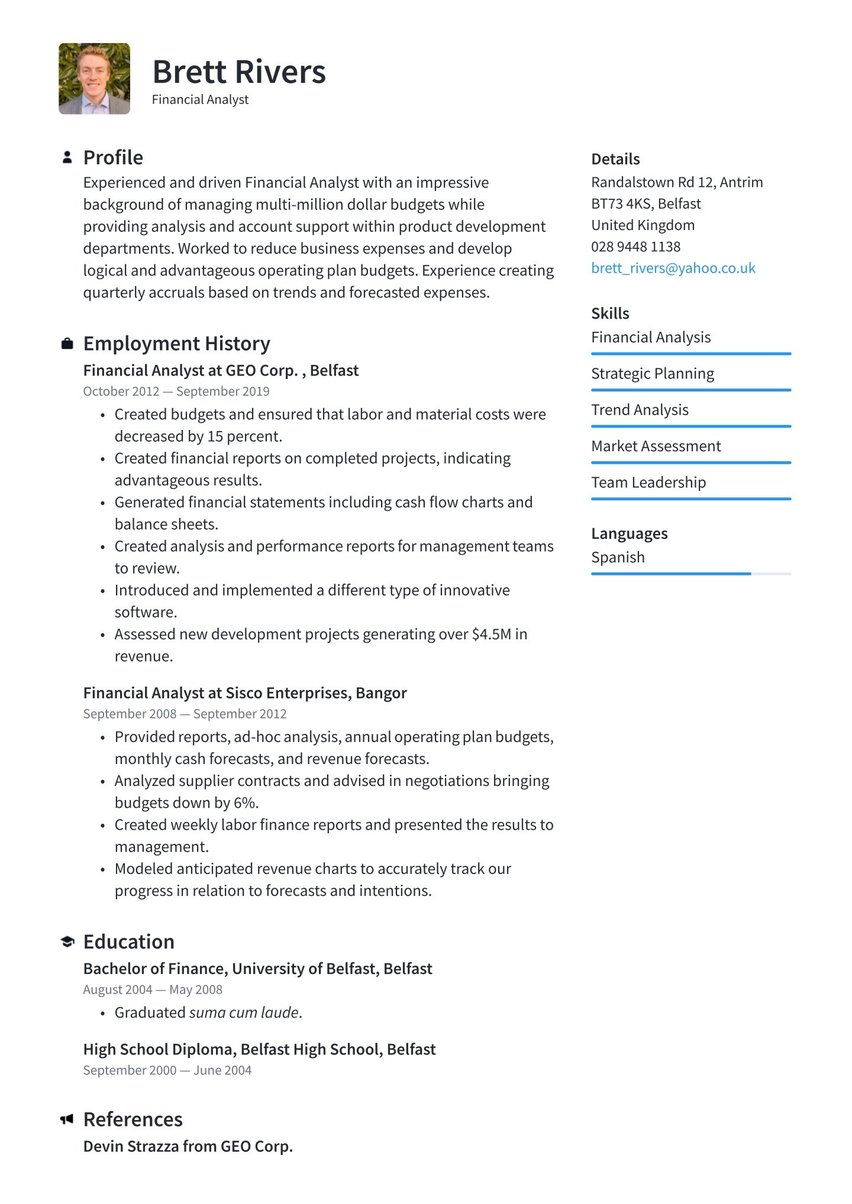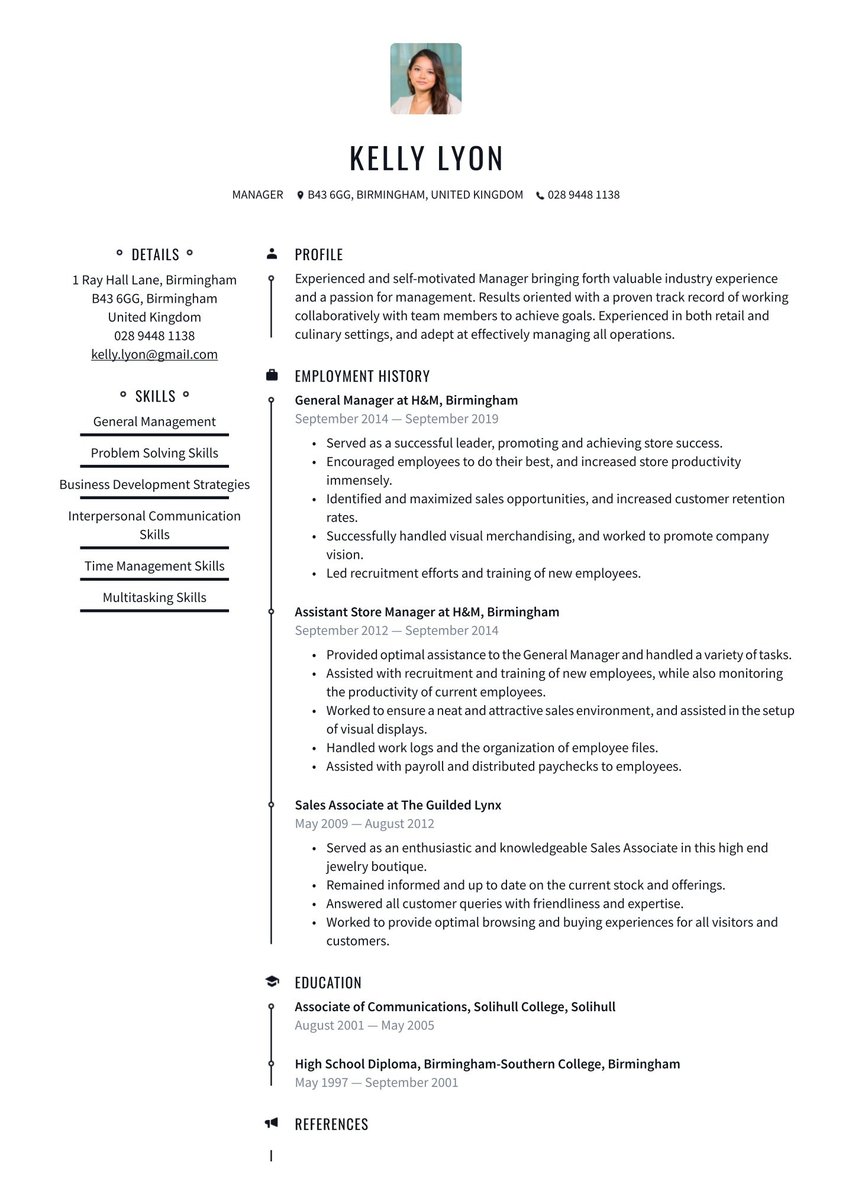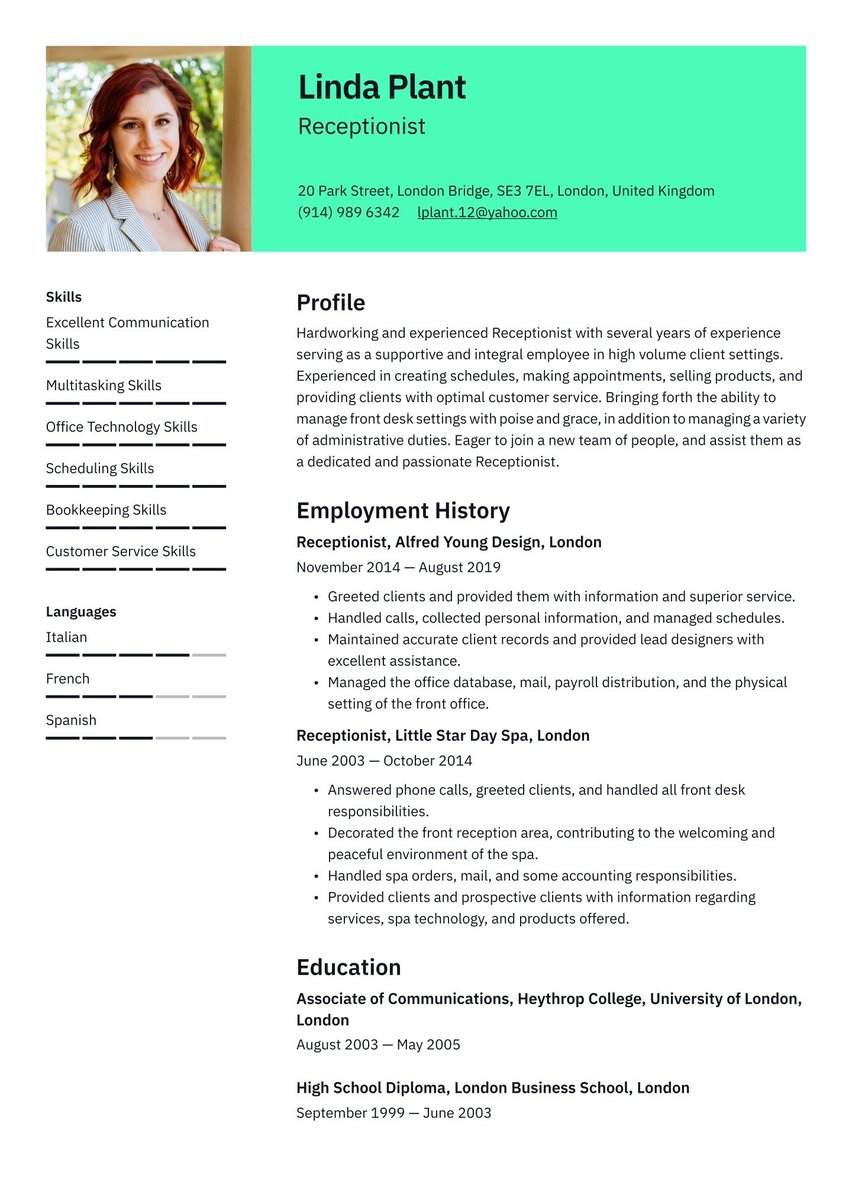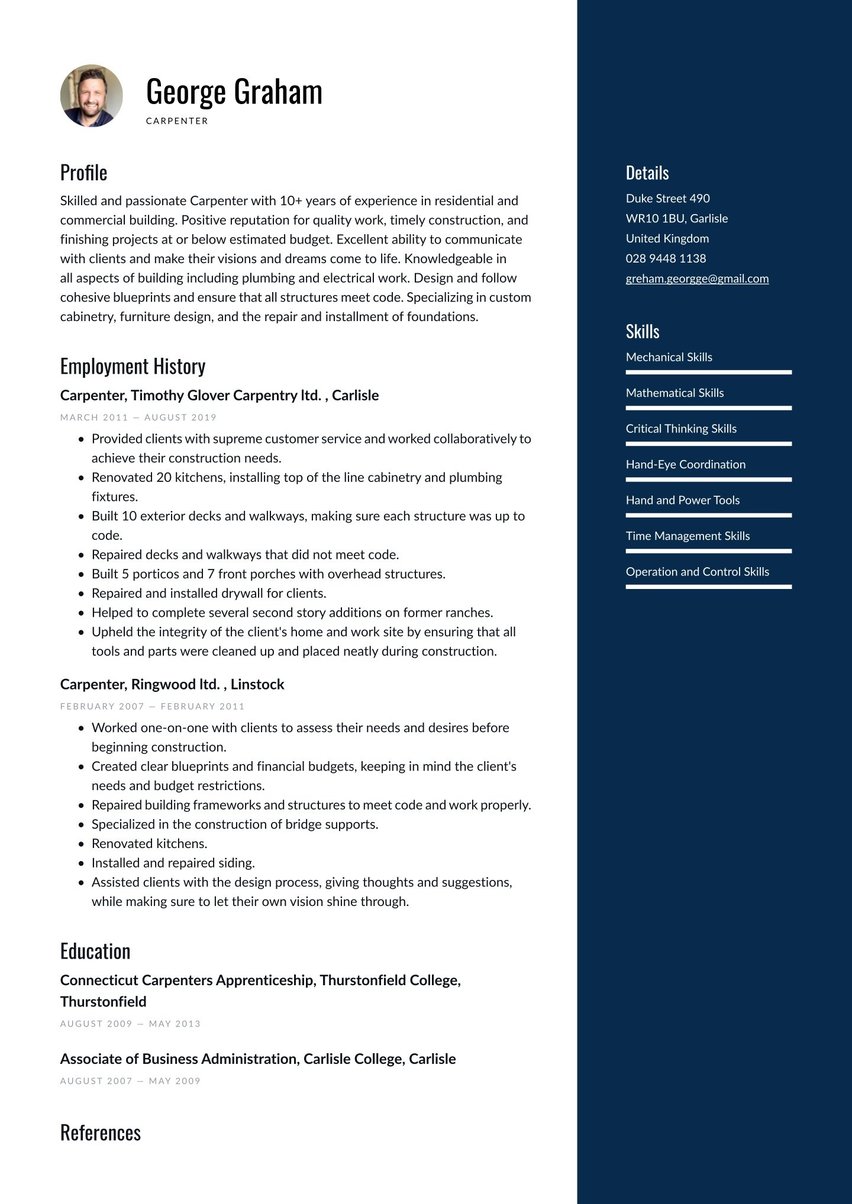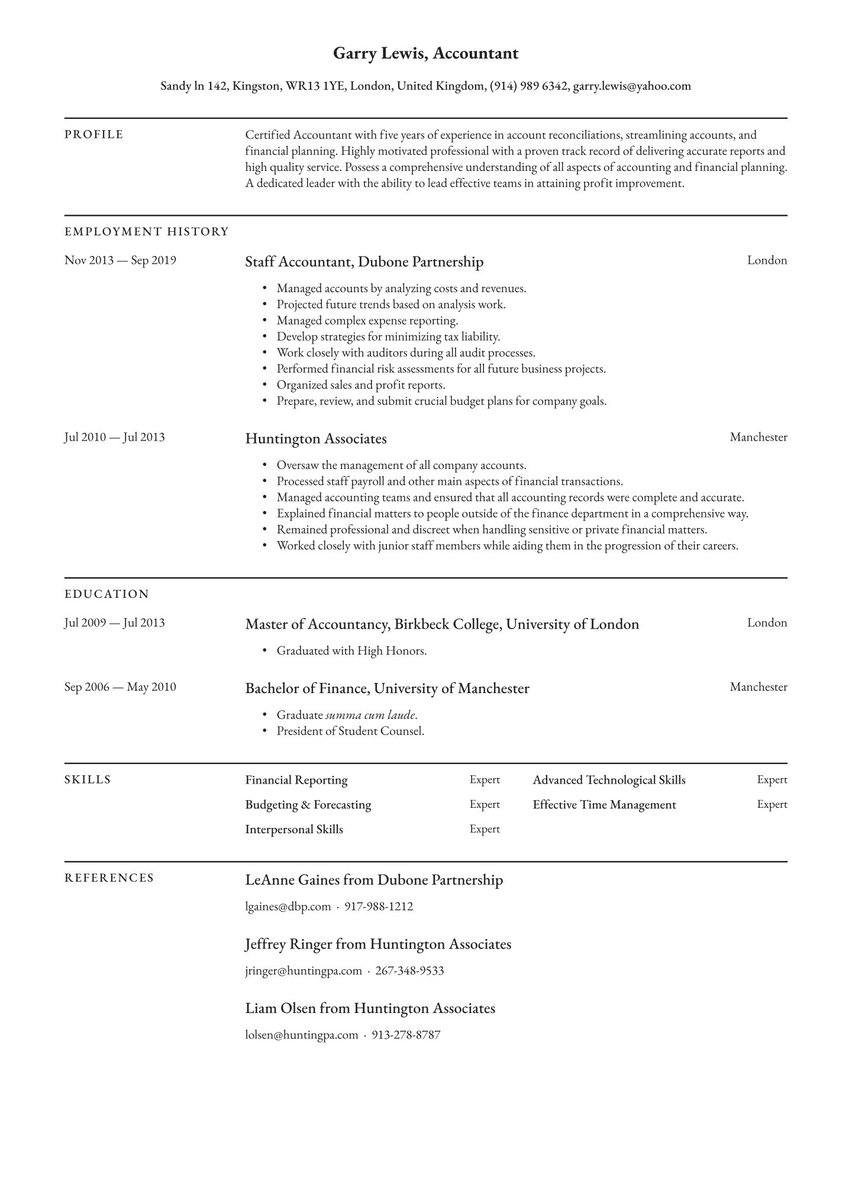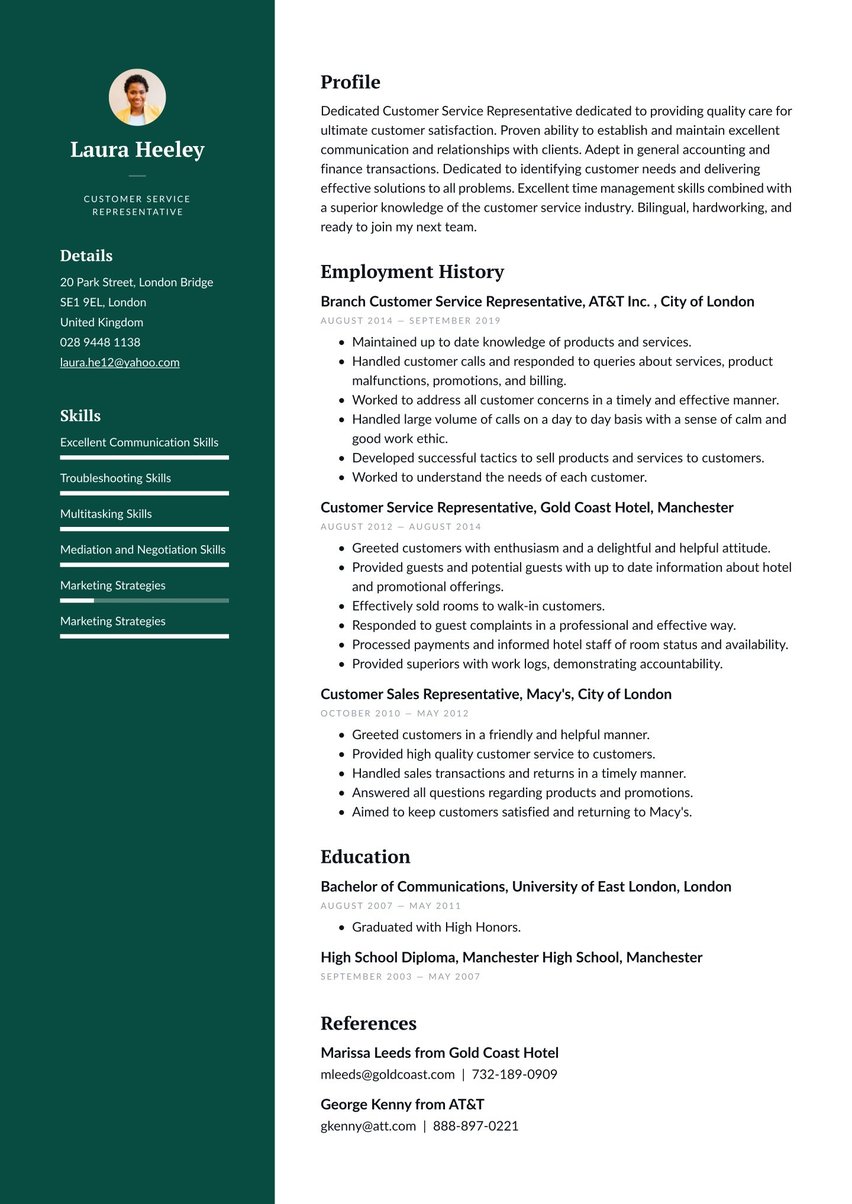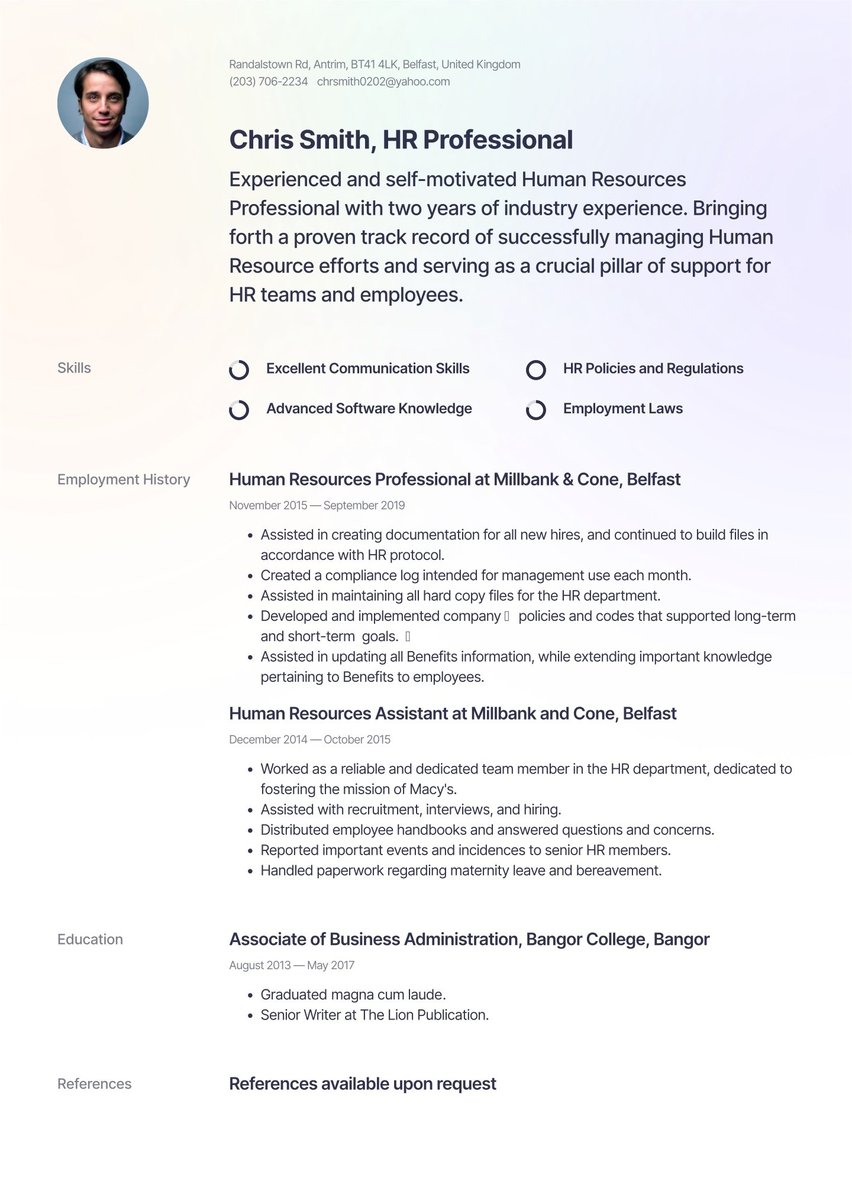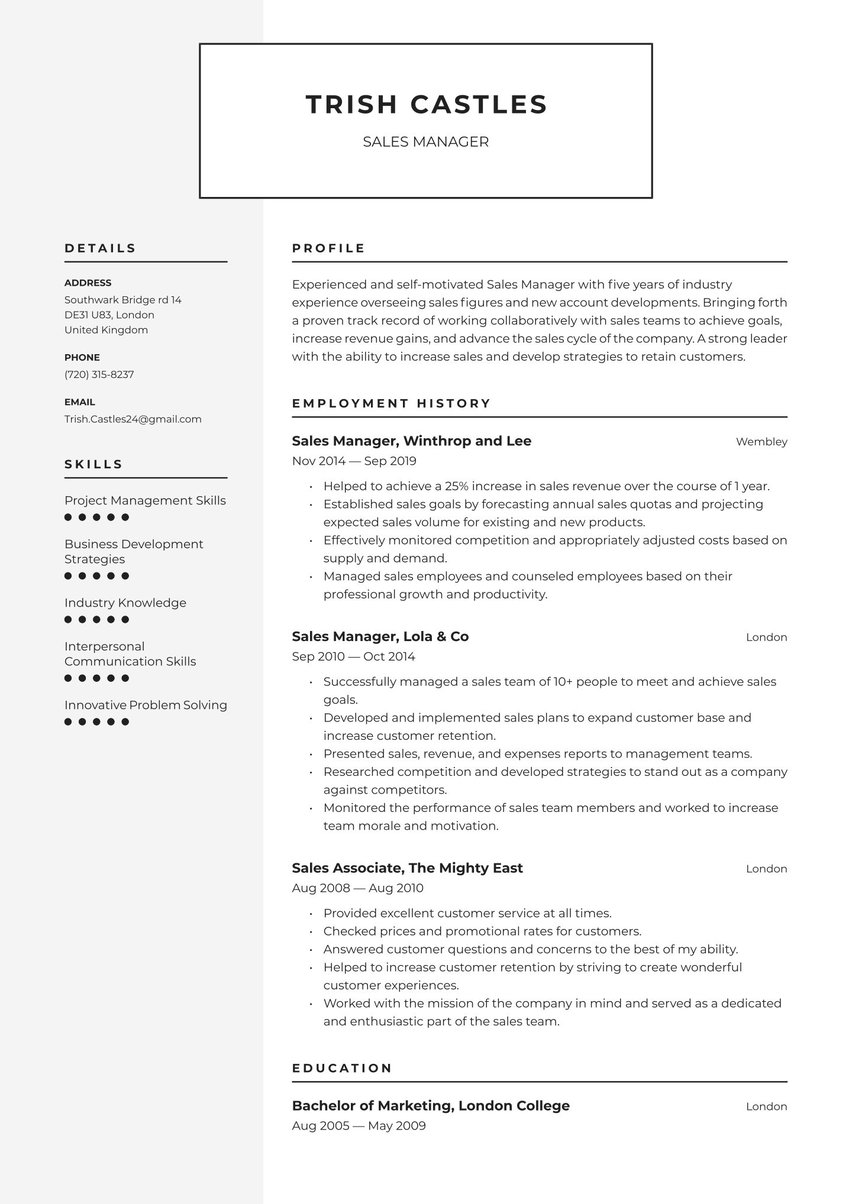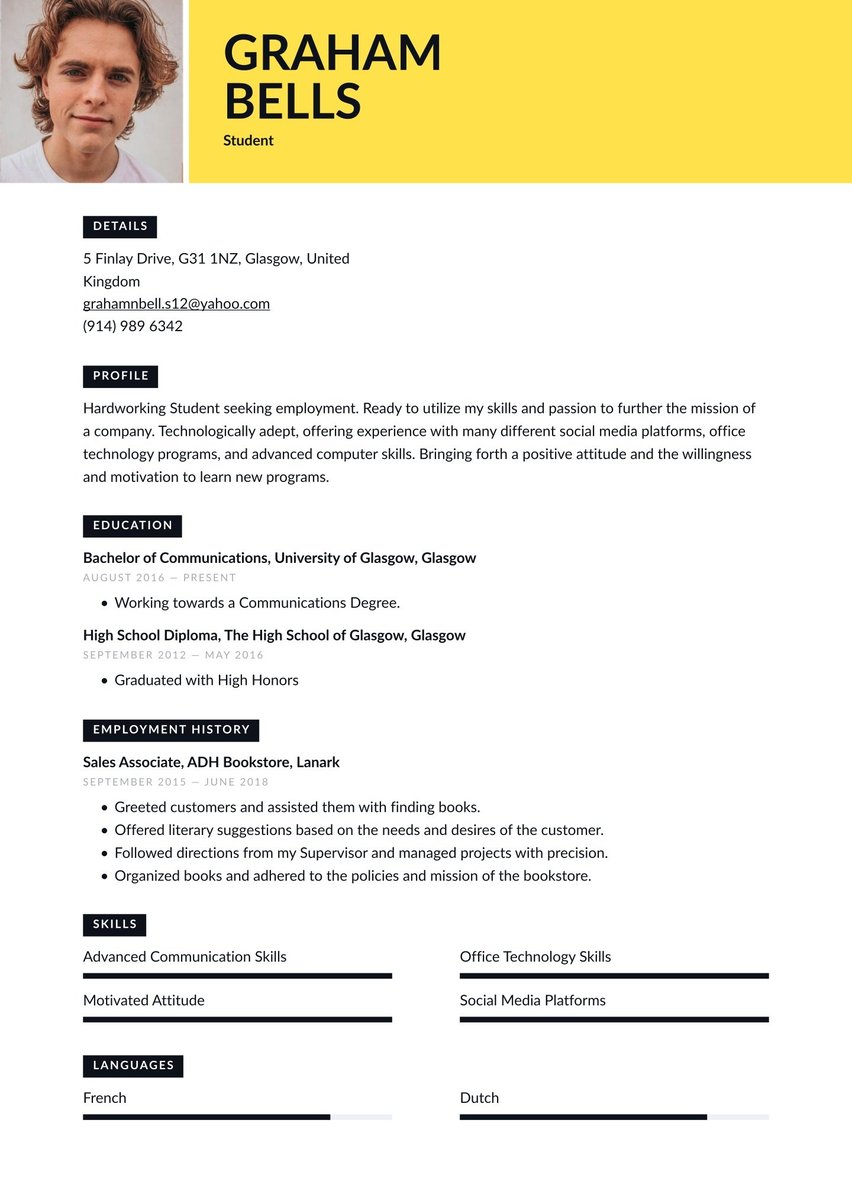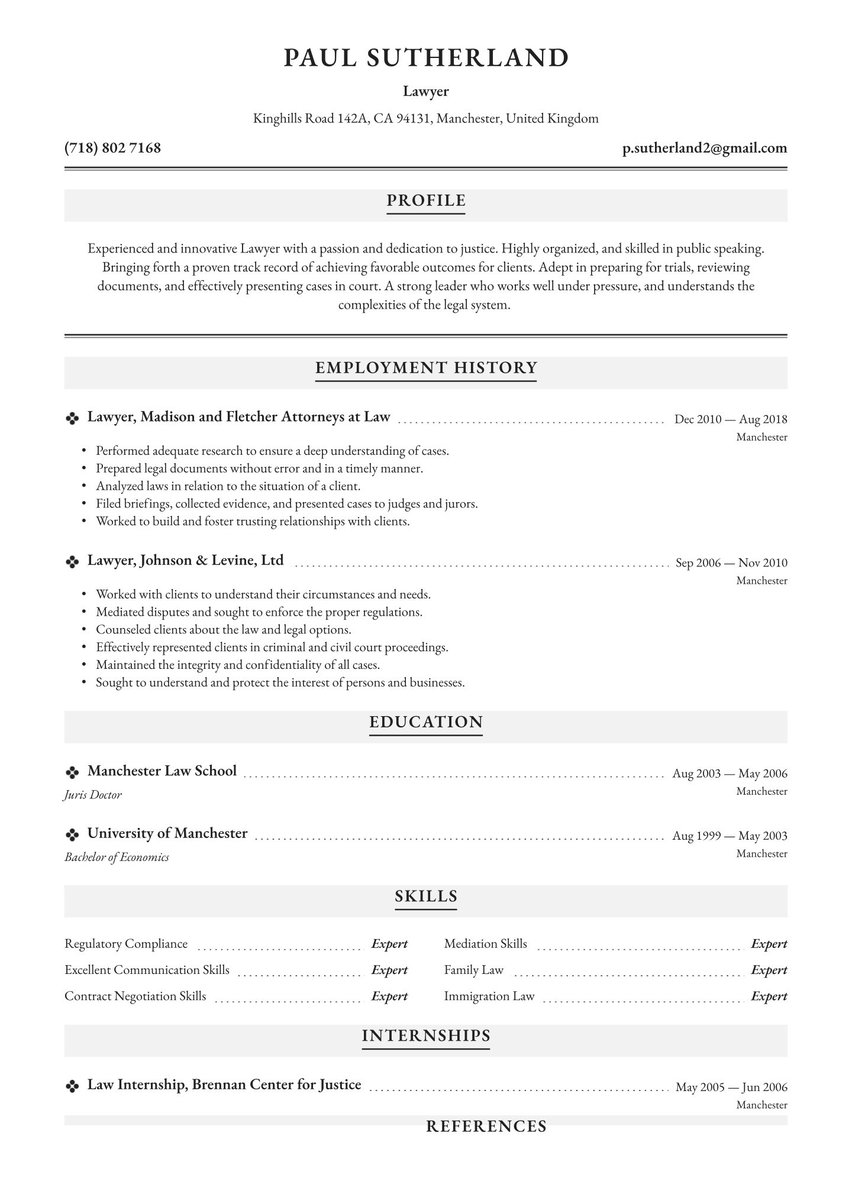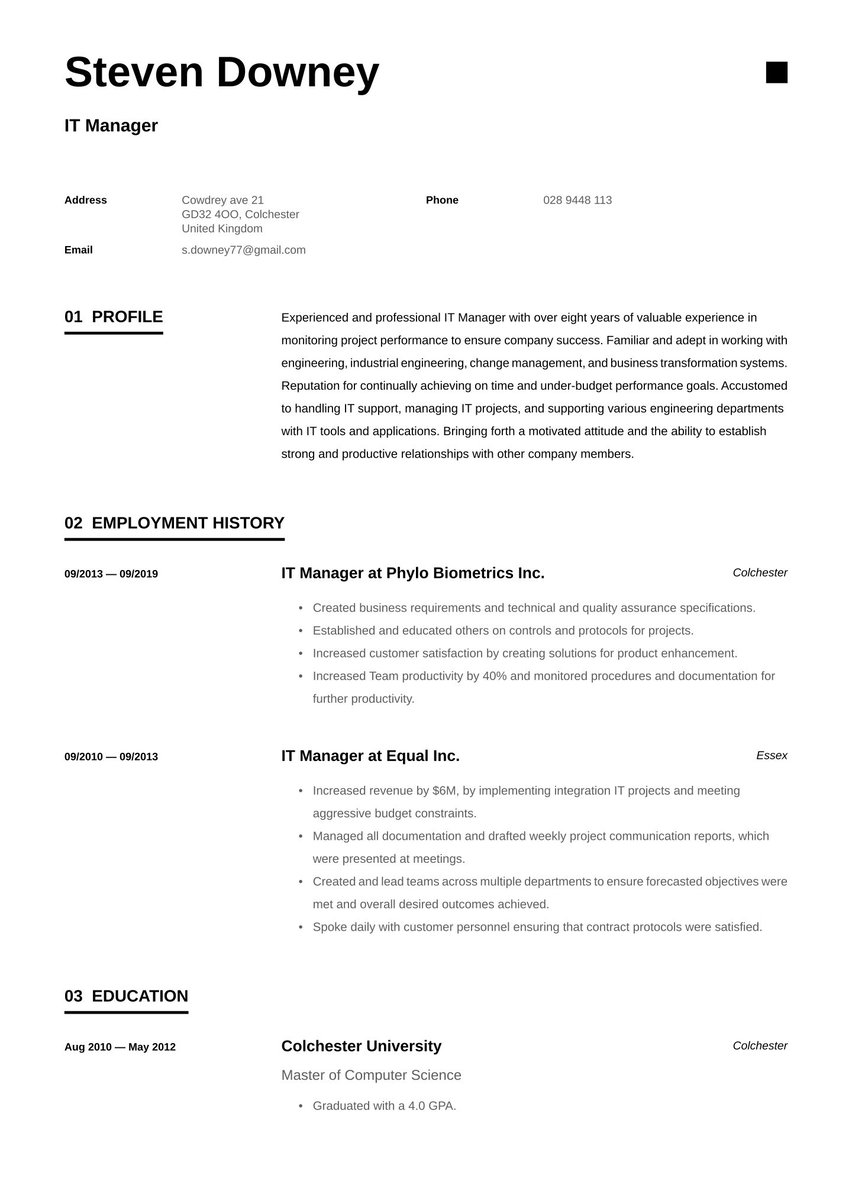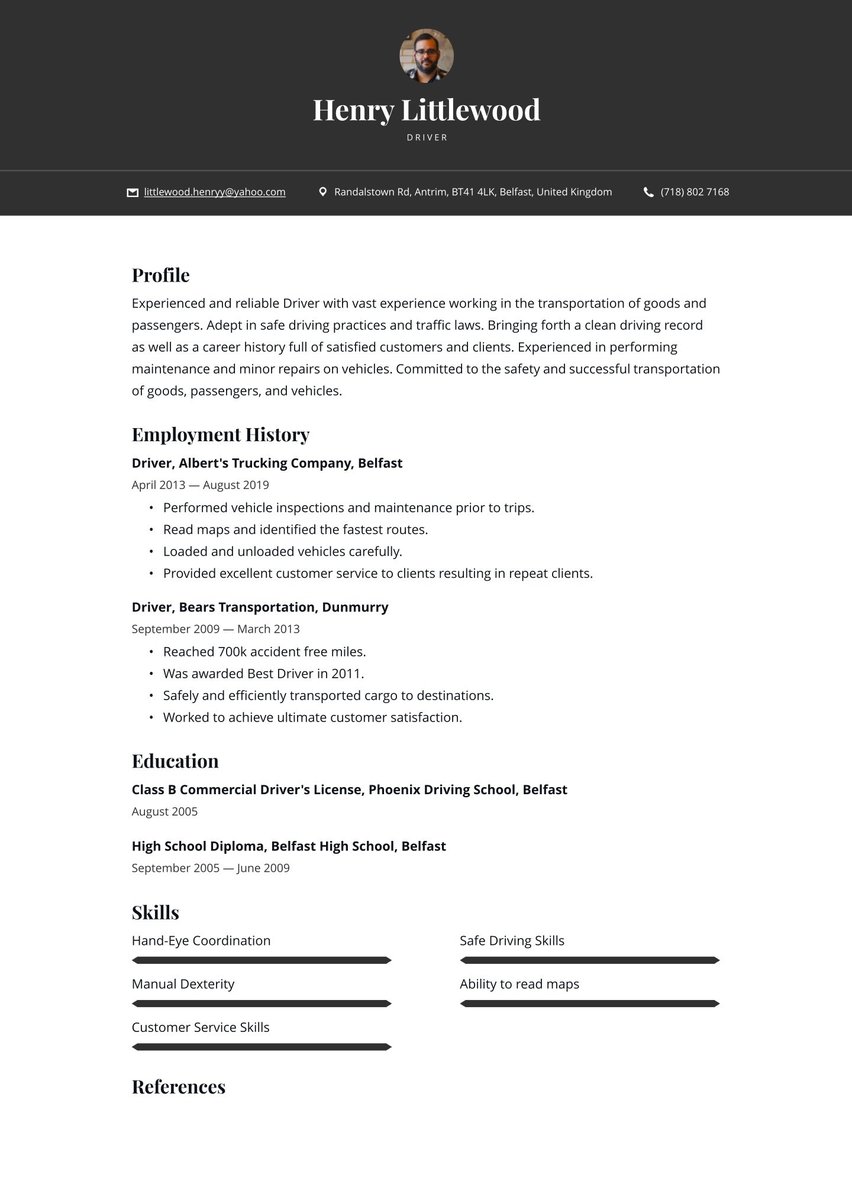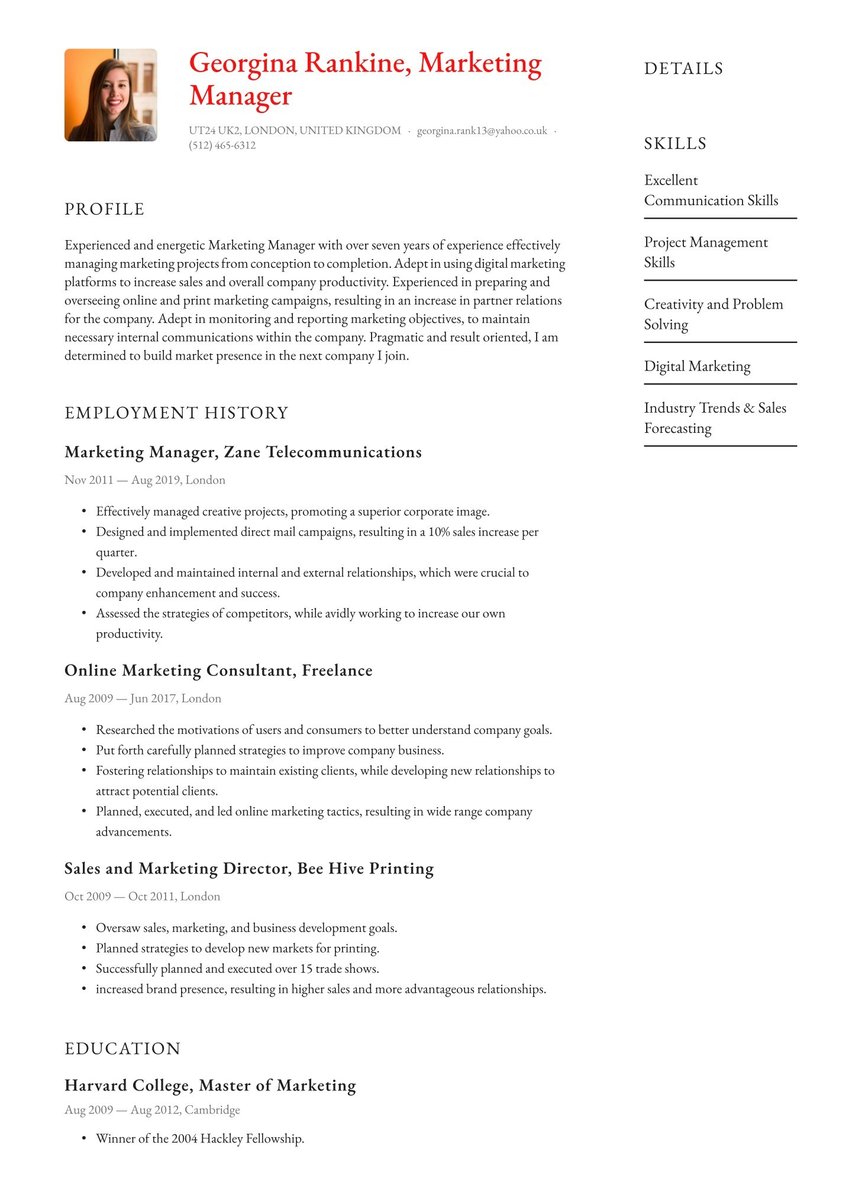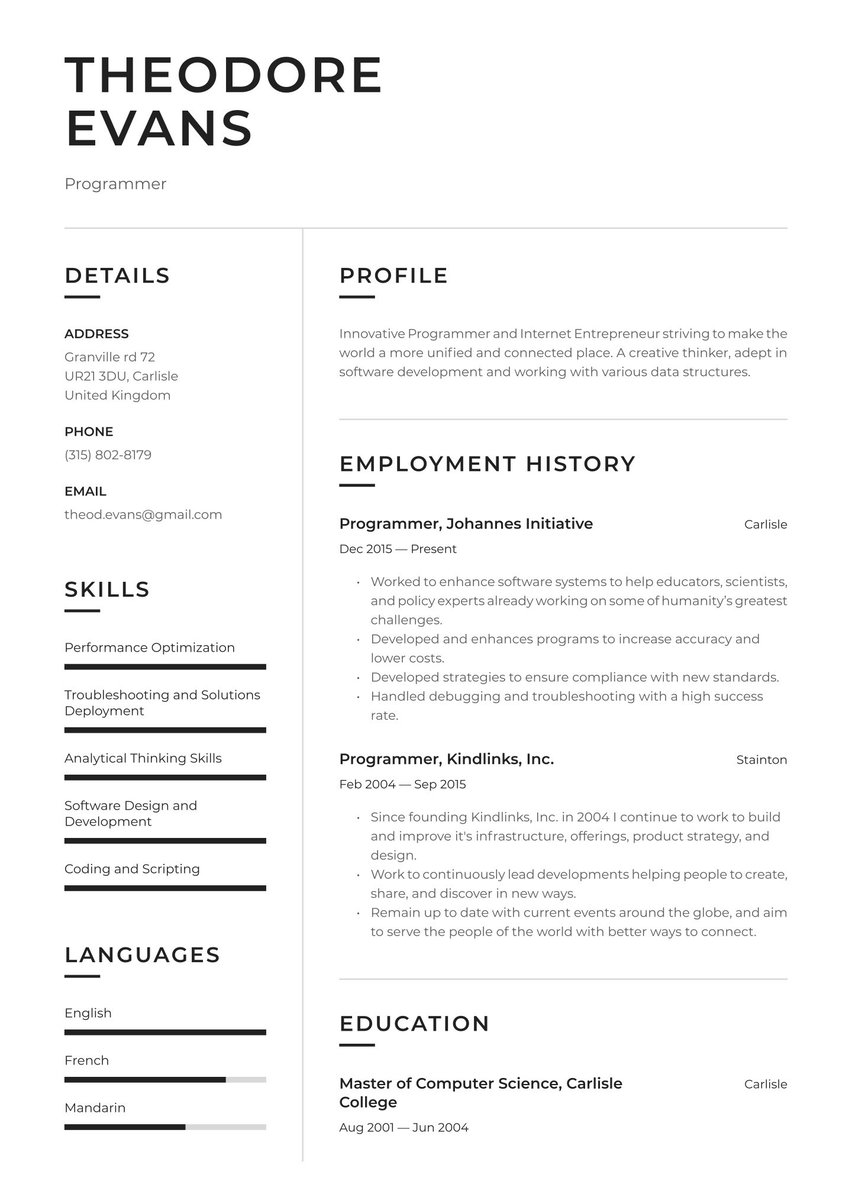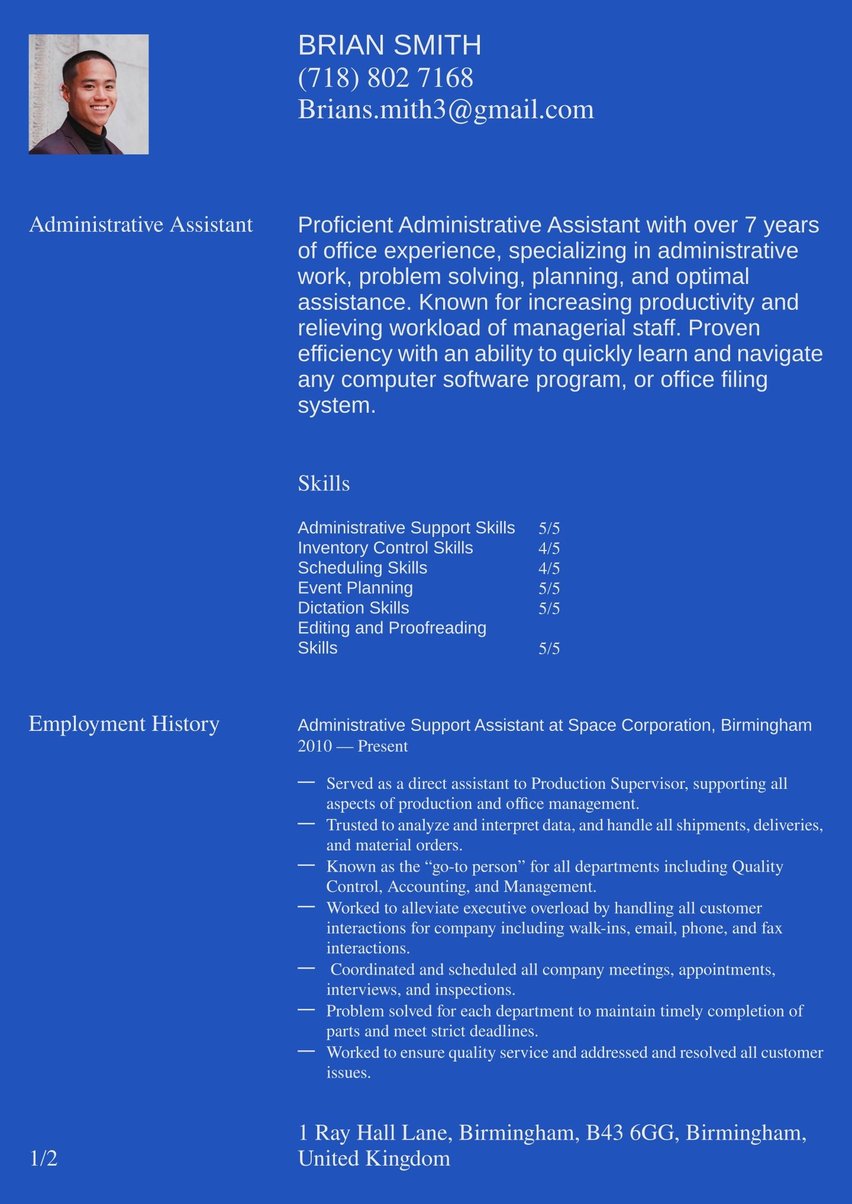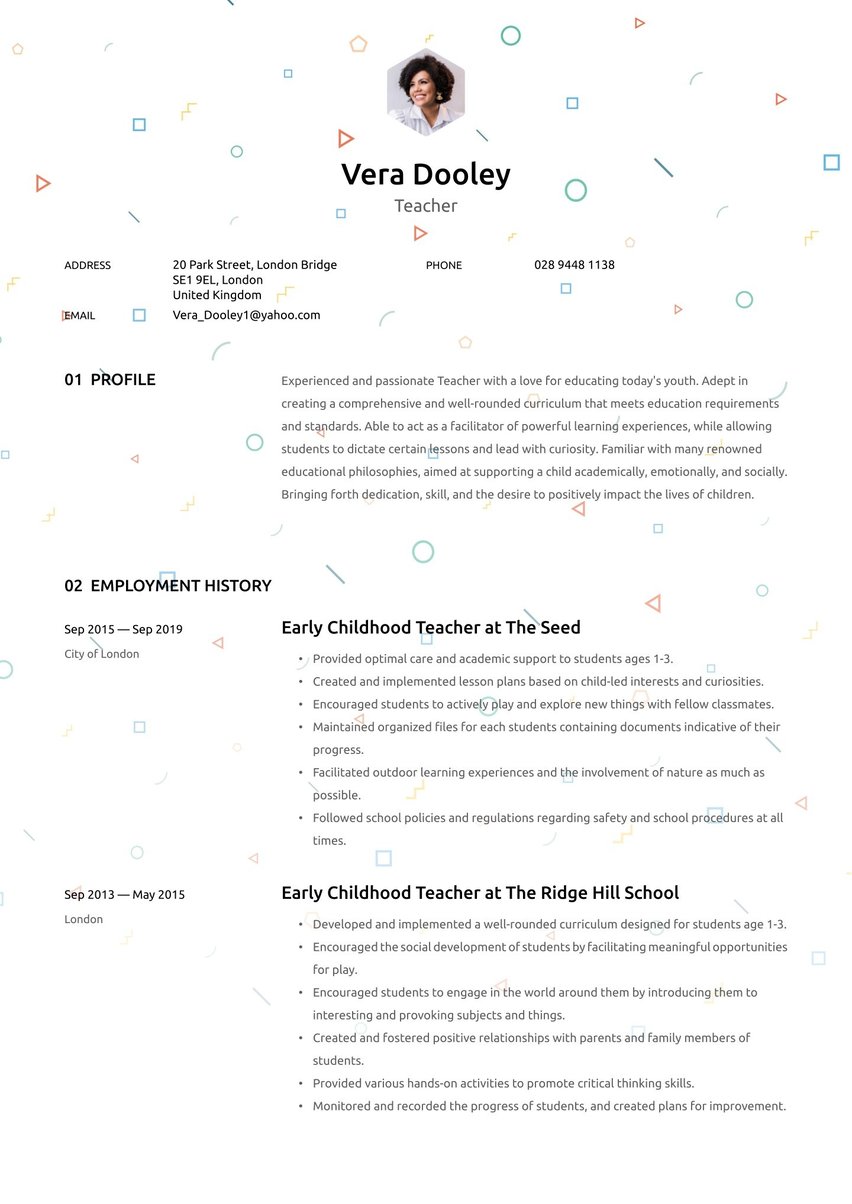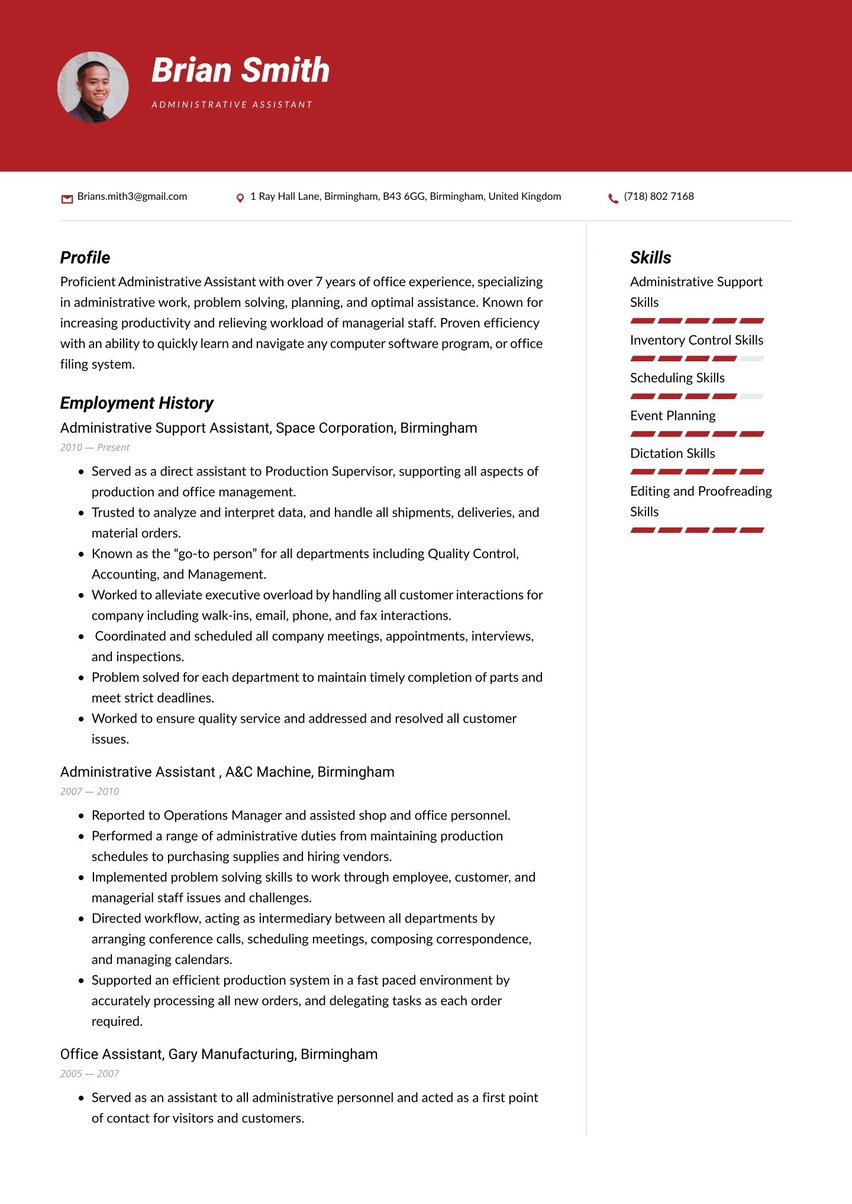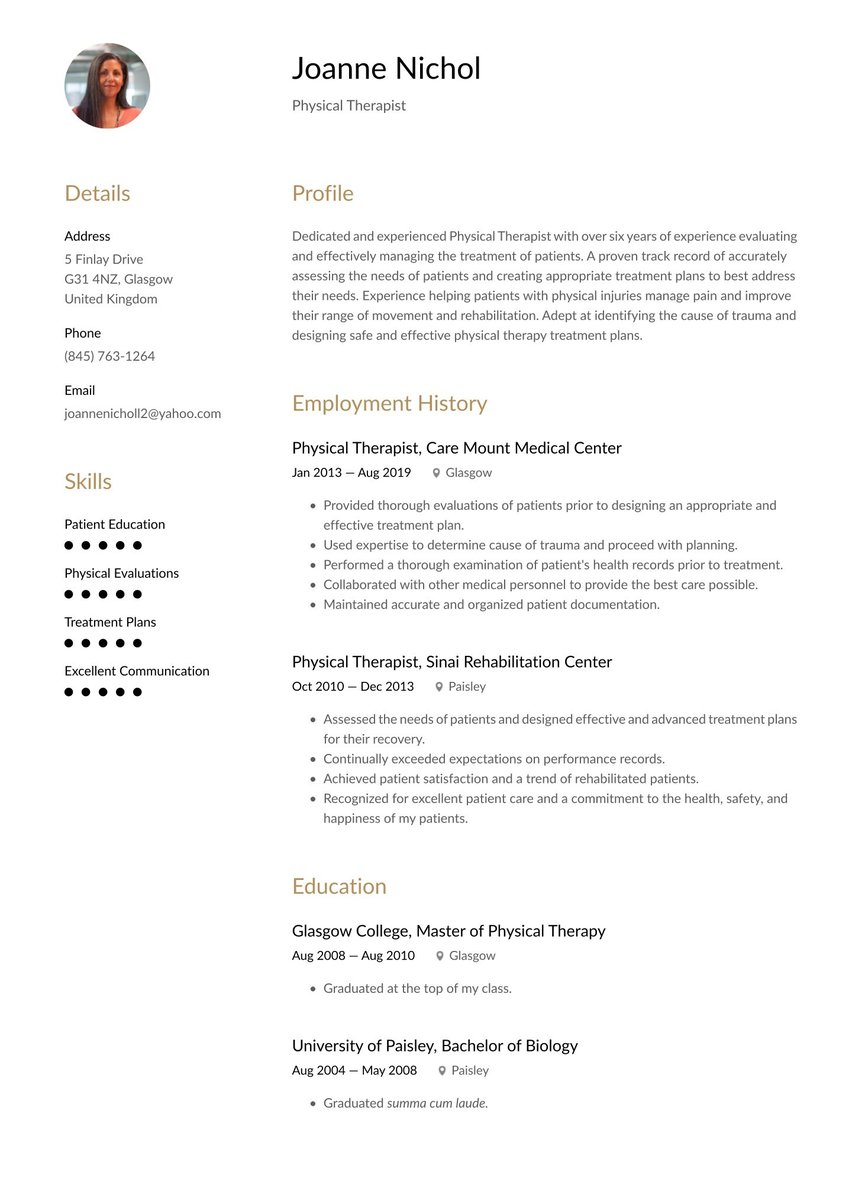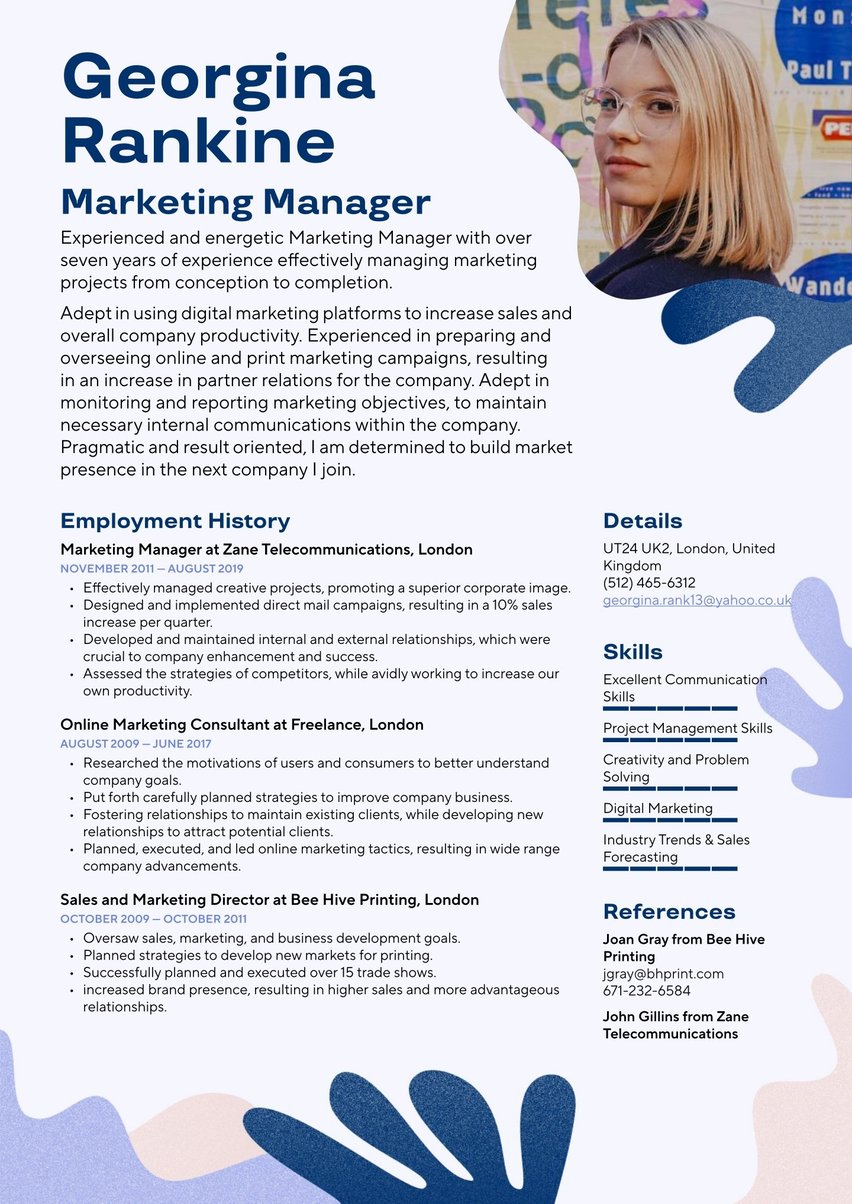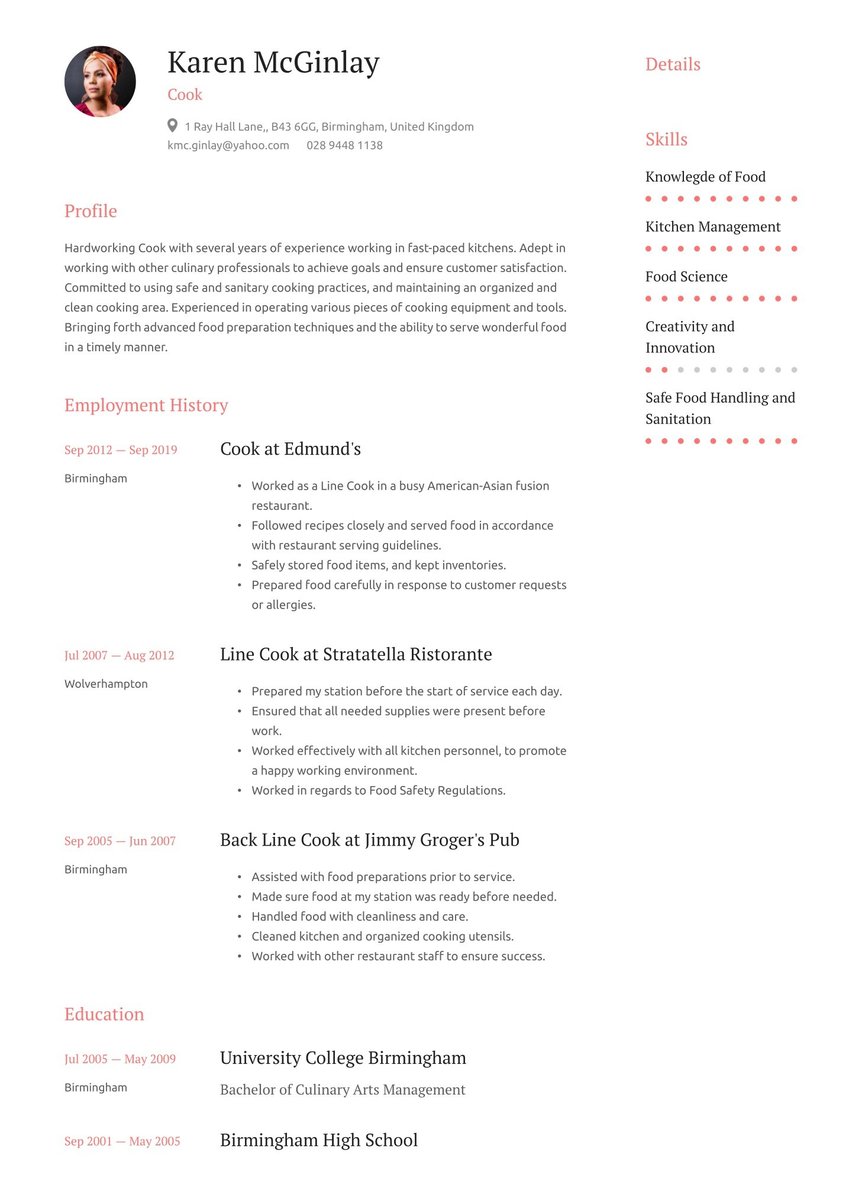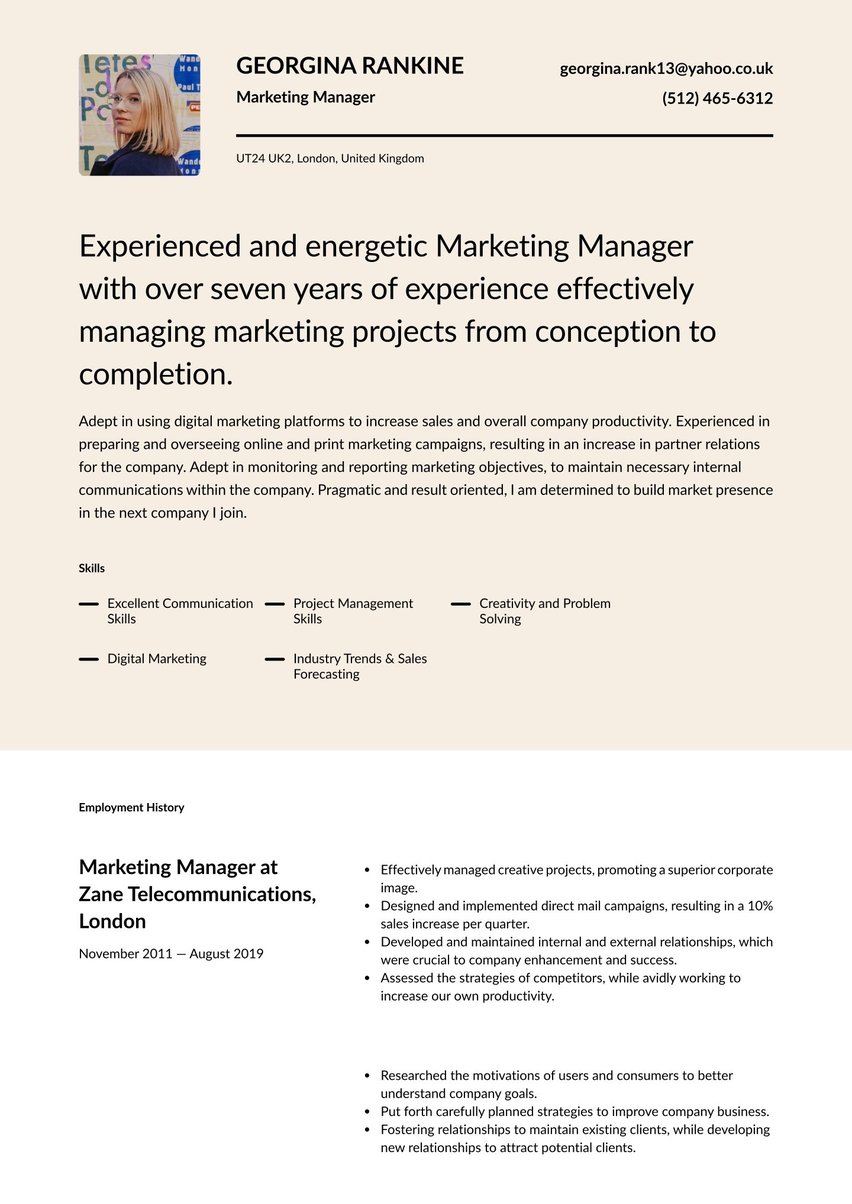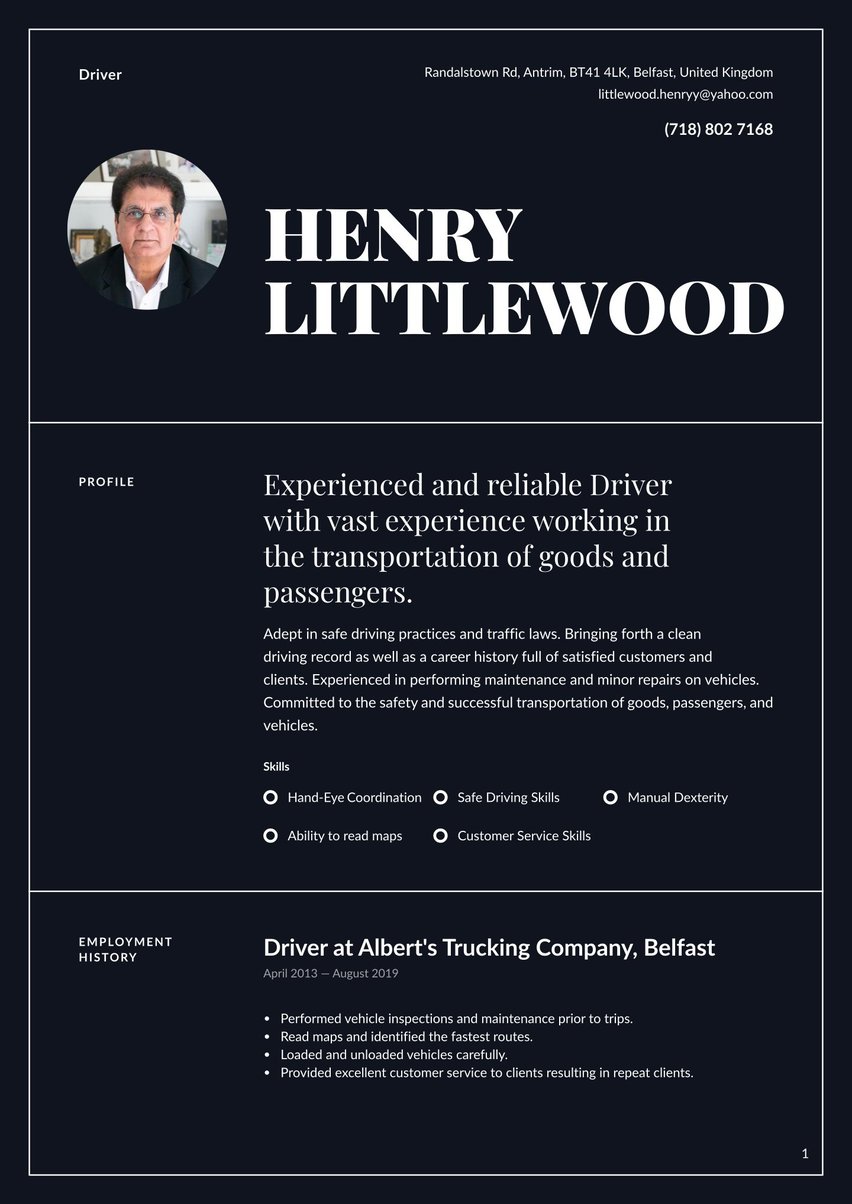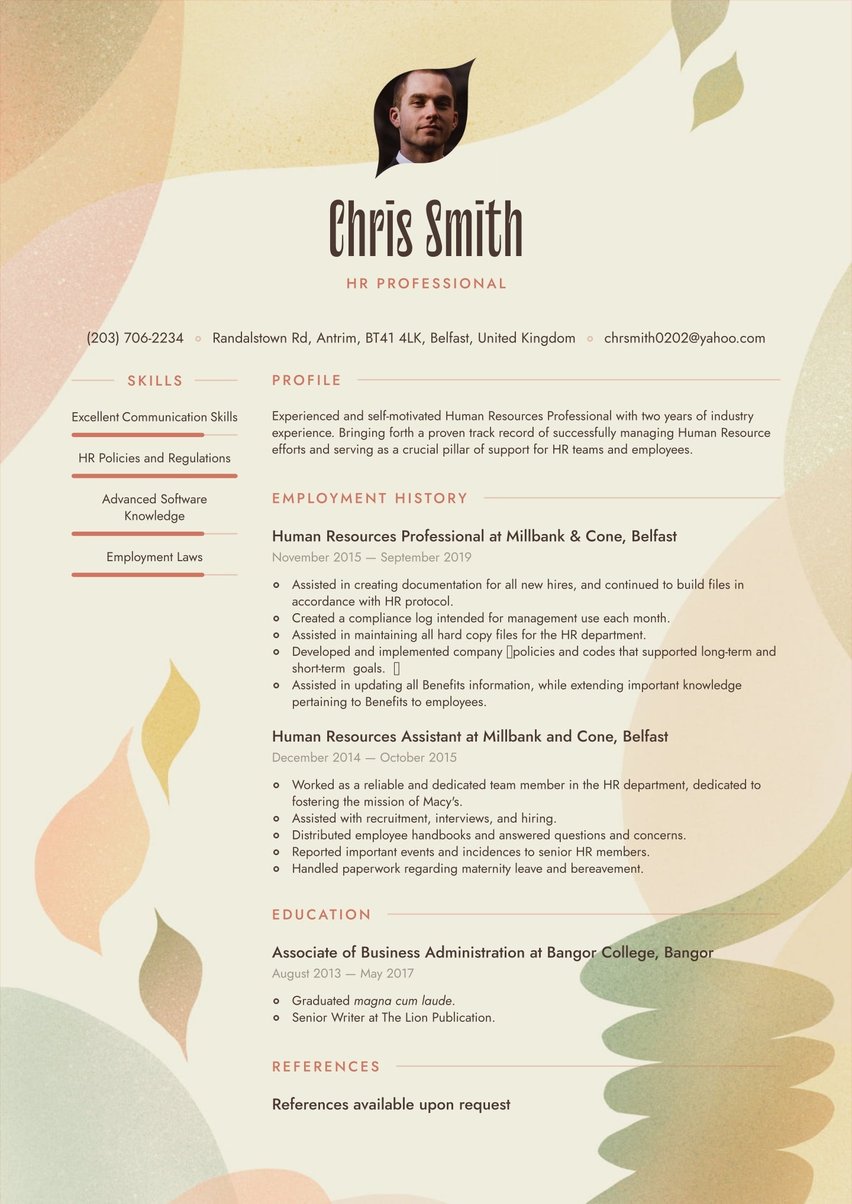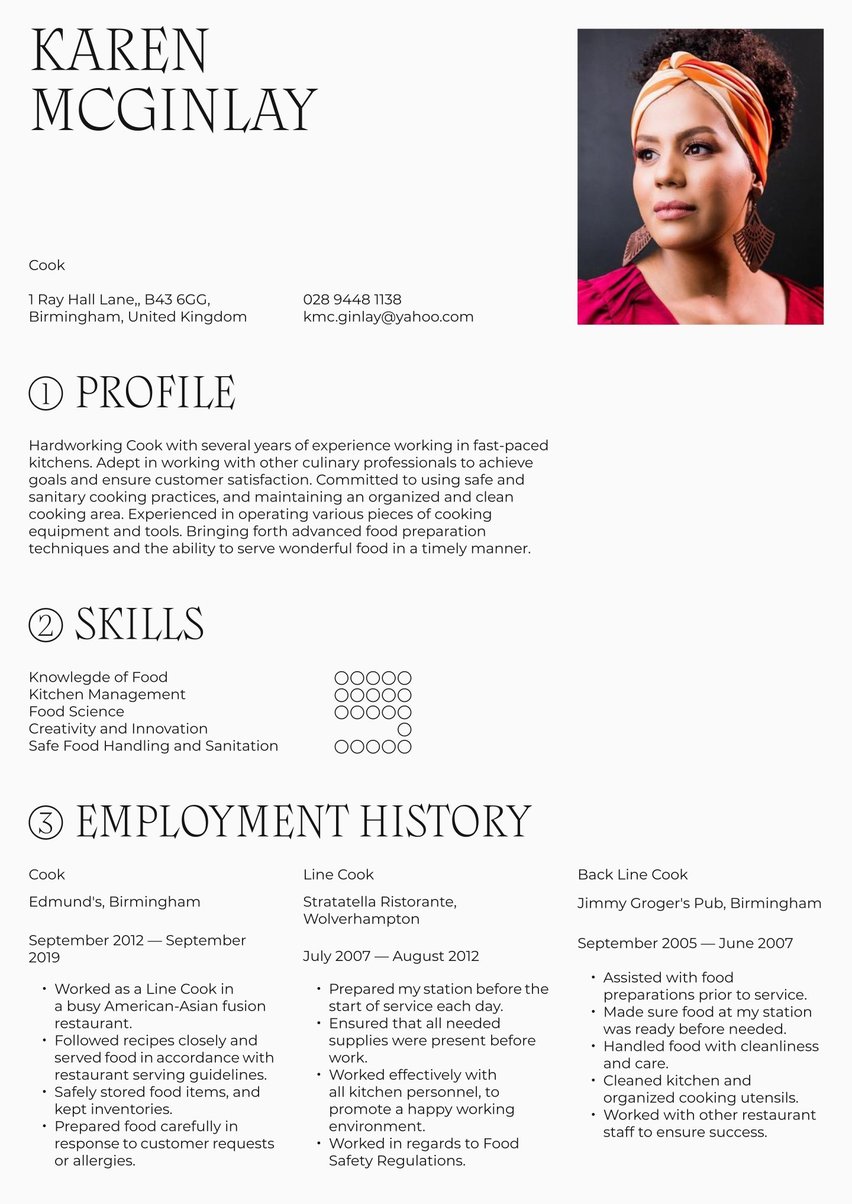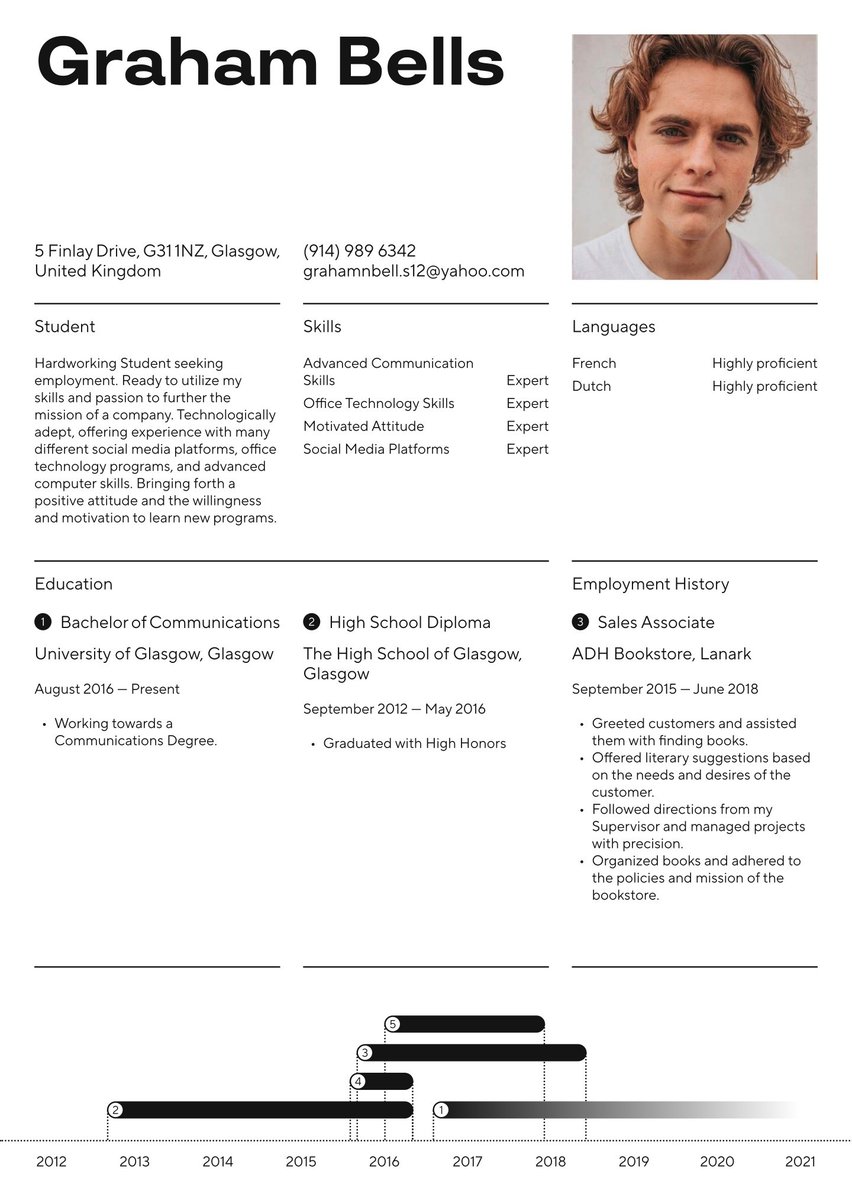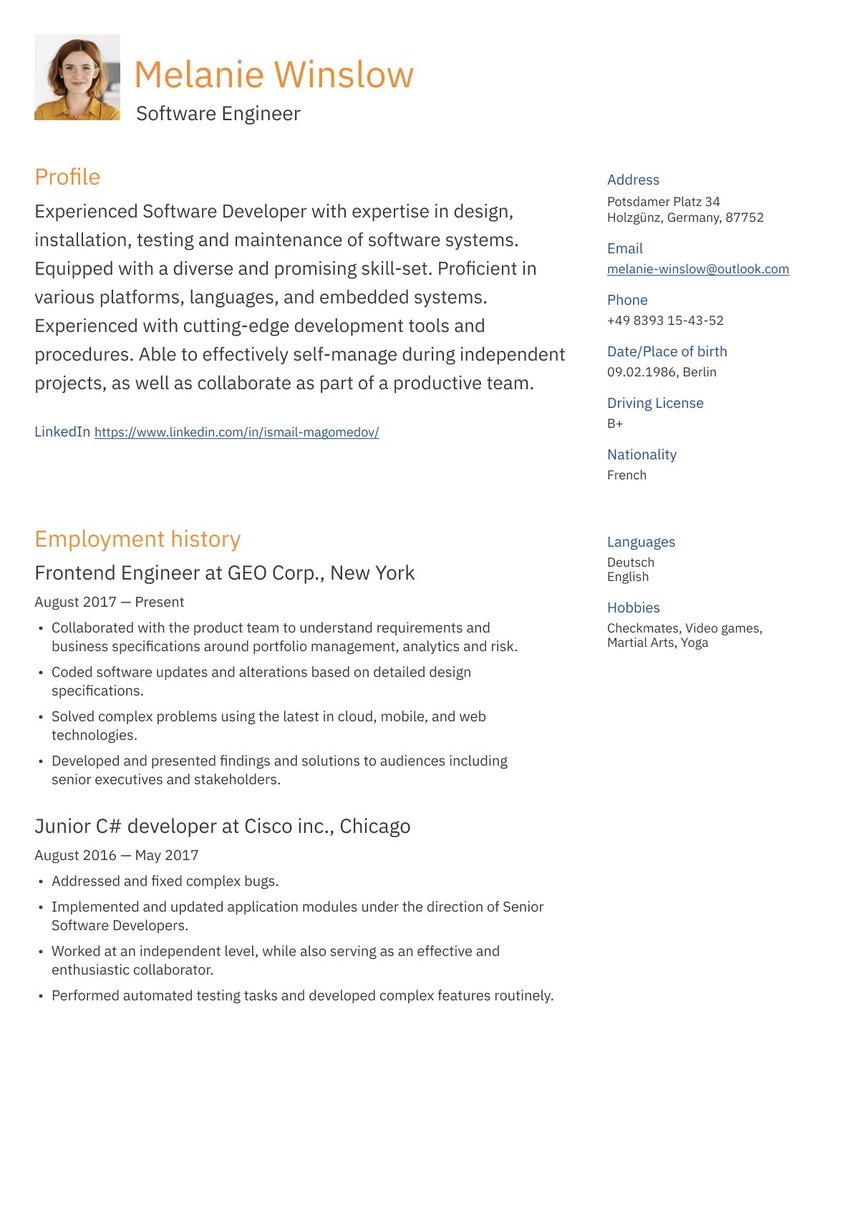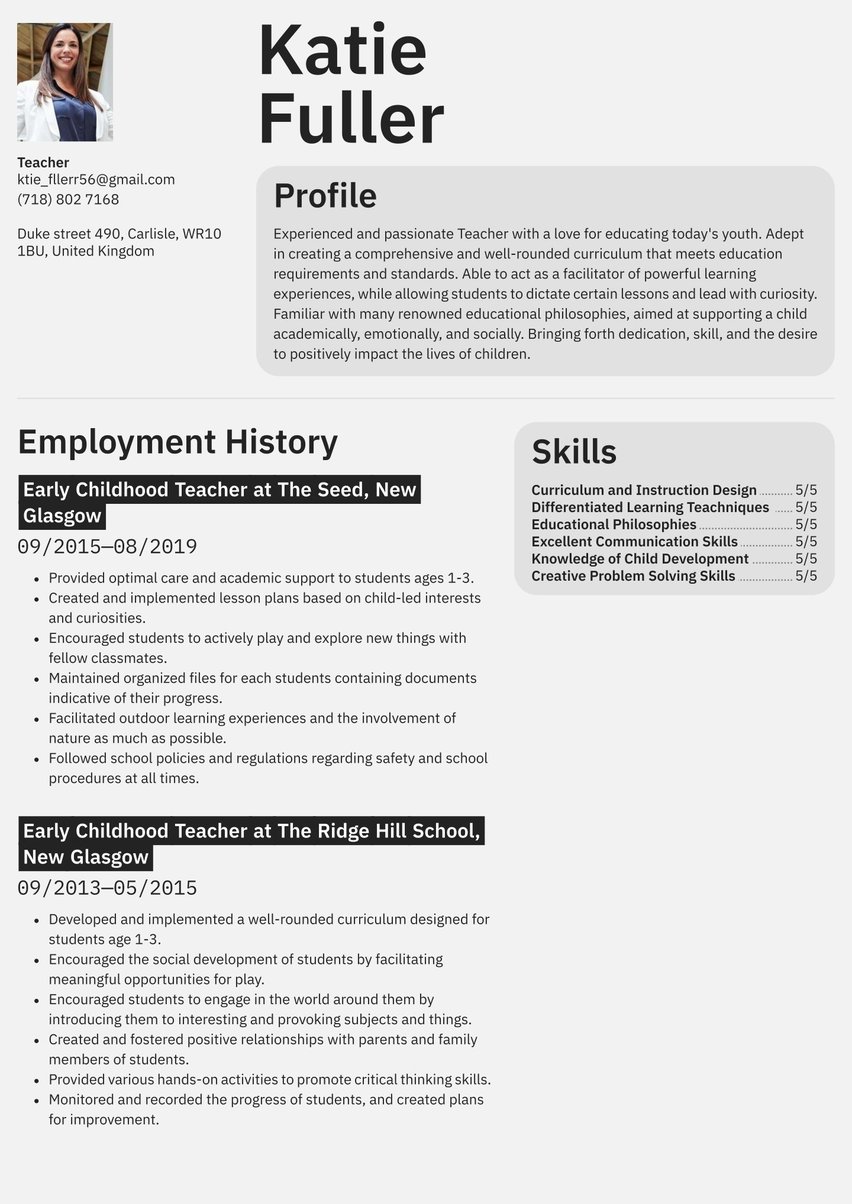Results driven professional with 5+ years of experience in administrative positions. Seeking to transition to the events planning industry and utilise my excellent planning and project management skills to help others successfully plan small and large scale events.
07/2019 - 10/2022, Administrative Assistant, Butler & Kahn, London
- Served as a first-point-of-contact for clients and directed calls and emails appropriately.
- Assisted with daily bookkeeping and clerical duties for this busy recruiting firm.
- Reviewed computer reports related to billing and receipts for accuracy.
- Scheduled meetings, drafted memos, and transcribed notes as needed.
- Assisted with the administration of HR processes including new hire paperwork and background checks.
- Created and updated projects in JIRA, averaging a total of 6 completed administrative projects per month.
- Oversaw and maintained calendar management for 24 employees.
- Worked to problem-solve and implement improved procedures to achieve a better workflow.
- Applied both analytical and creative thinking skills to achieve high levels of productivity.
10/2017 - 06/2019, File Room Clerk, London Square Associates, London
- Reported directly to the Director of HR and effectively managed all file room projects assigned to me.
- Maintained various reports, logs, and data for 36 employee files.
- Facilitated the secure submission and retrieval of archived employee files in a timely manner.
- Implemented effective organisation techniques to streamline processes and save time.
- Performed Quality Control processes for employee records to ensure accuracy.
09/2013 - 05/2017, Bachelor of Arts in Communications, Queen Mary, University of London, London
- English
- French
- German
- Spanish; Castilian
- Agile Project Management
- Event Management and Coordination
- Interpersonal Communication
- Financial Accounting
- Creative Thinking
When it’s time to change, it’s time to change.
As someone going through a significant transition, you know that making the decision can feel like half the battle. However, as a seasoned professional you’ll also understand that communicating the reasons behind this change will be of the utmost importance. Well, a strong career change CV will help you to do just that.
A career change CV is your ticket to showing the person with the hiring power — the hiring manager — why this transition would be a smart move for you both. At Resume.io we want to help you to communicate why your skills will make you a valuable asset by committing your professional story to paper.
This CV guide, along with the corresponding CV example will cover the following topics:
- What does a car sales professional do?
- How to write a car sales CV (tips and tricks)
- The best format for a car sales CV
- Advice on each section of your CV (summary, work history, education, skills)
- Professional CV layout and design hints.
If after you’ve read this guide you’re still looking for inspiration to make your career change job applications successful, don’t forget you can browse through dozens of CV guides and CV examples for a range of professions in our library.
What does a career change mean?
Whether you’ve been in the workforce for two years or twenty, sometimes it’s just time to move on. A career change is a huge life adjustment.
However, it’s likely that after spending some time in your previous sector, you’ve come to the conclusion that it’s not going to work out. You’re ready to jump into something new in your professional life, and now your career change is underway.
Sometimes a career change is about staying in the same industry but coming at it from a different angle, or maybe you’re using those skills in a new way through a totally new industry. Perhaps you’ve even been back to school to study for your career change.
Whatever your personal circumstances, it’s a big decision and it can be a stressful time. One thing is consistent regardless of your situation: it’s your job to communicate why that change will make you an even more valuable candidate than others who have a more traditional professional background.
How much can you expect to earn from a career change?
Did you know that data analysed by the Office of National Statistics showed that in 2021 job changers saw an average increase in hourly pay of 9.5 percent, compared to a 2.9 percent increase for job stayers? That career change could really pay off after all!
How to write a career change CV
When you’re embarking on a new career, your CV is likely to be under more scrutiny than applicants with a more traditional background. However, if you take the time to make a strong CV then you can already start to combat this. You want to fill in the gaps in the hiring manager’s mind as to why you’re the right person for the job.
You can do this by making sure you carefully consider the best way to complete each of the standard sections a CV must include. In fact, your career change could even turn into a positive unique selling point. Your CV should contain the following elements:
- The CV header
- The CV summary (aka profile or personal statement)
- The employment history section
- The CV skills section
- The education section
Choosing the best CV format for a career change
The preferred CV format may differ from industry to industry. However, if you’re going through a career change then you almost certainly have some existing professional experience. That means that in all likelihood the reverse chronological format will be preferred.
The reverse chronological CV format makes your employment history take centre stage. Like the name suggests, it keeps your most recent experience at the top where the hiring manager’s eyes will see it first. Not only is this CV format the standard in most career paths, but it is the best way to highlight your relevant experience. Transferable skills are your best friend in a career change CV, and this is a sure-fire way to be able to show them off.
CV summary example
The CV summary is the first thing that a curious hiring manager will see. Think of it as an introduction to your professional profile. You have several sentences to summarise why you are the missing piece of the hiring manager’s professional puzzle. Use your career change as an opportunity to stand out!
This space is a great opportunity to highlight your most relevant transferable skills, and even spotlight a professionally relevant accomplishment or two. Since this is the only place you can write freeform on your career change CV, it’s a great spot to spell out why your past experience would make you a great candidate in this new sector. Pull out those creative writing skills to use vivid verbs that will speak to the hiring manager and capture their attention.
Results driven professional with 5+ years of experience in administrative positions. Seeking to transition to the events planning industry and utilise my excellent planning and project management skills to help others successfully plan small and large scale events.
Remember to adjust your CV summary for each individual job application. This is the best way to consistently highlight your most relevant skills, attributes, and accomplishments. A tailor-made CV will put you on the fast track to a successful career change!
Employment history sample
The employment history section will probably make up the largest portion of your career change CV. It’s also likely to be the part of your CV that the hiring manager will be paying the closest attention to. This is particularly true, since you’re unlikely to have a similar background to the majority of other candidates as you go through this career change.
When filling out the employment history section, list your job title, the place of employment, location and dates worked. These details will make up a subheading that is easy to skim through. Underneath this, list several concise bullet points on the main responsibilities, accomplishments, and other important highlights that are relevant to the job listing.
The most important part of this section for someone going through a career change is relevance. You need to make it crystal clear to the hiring manager why your past experience is relevant to their job listing. What have you learnt that would make you a great employee in this specific job? Take a look at the CV sample content below for some ideas on how to put these tips into action in your own writing.
Since a career change often means new colleagues with different perspectives, you may have to clarify why some of your past achievements are so impressive. On the flip side, accomplishments that were normalised in your old career path could now set you apart.
If you want to get some ideas of what a hiring manager is looking for in a specific field, then we have a range of job-specific CV examples that could help including a teacher CV sample, marketing CV example, or sales CV sample.
Administrative Assistant, Butler & Kahn, London
July 2019 - October 2022
- Served as a first-point-of-contact for clients and directed calls and emails appropriately.
- Assisted with daily bookkeeping and clerical duties for this busy recruiting firm.
- Reviewed computer reports related to billing and receipts for accuracy.
- Scheduled meetings, drafted memos, and transcribed notes as needed.
- Assisted with the administration of HR processes including new hire paperwork and background checks.
- Created and updated projects in JIRA, averaging a total of 6 completed administrative projects per month.
- Oversaw and maintained calendar management for 24 employees.
- Worked to problem-solve and implement improved procedures to achieve a better workflow.
- Applied both analytical and creative thinking skills to achieve high levels of productivity.
File Room Clerk, London Square Associates, London
October 2017 - June 2019
- Reported directly to the Director of HR and effectively managed all file room projects assigned to me.
- Maintained various reports, logs, and data for 36 employee files.
- Facilitated the secure submission and retrieval of archived employee files in a timely manner.
- Implemented effective organisation techniques to streamline processes and save time.
- Performed Quality Control processes for employee records to ensure accuracy.
CV skills example
In a career change CV, transferable skills are the name of the game. That’s why the skills section is particularly important for you. This is your opportunity to put in plain, simple terms exactly why your past experiences have equipped you well for this job opportunity.
The employment history section is the main focus of your career change CV, so mention just several of your skills that pertain to the role you’re applying for. When prioritising which to include, consider the keywords that the hiring manager may be looking out for. Read over the job advert and check the word choice that is being used there. You want to make sure that you and the hiring manager are really speaking the same language.
If you are transitioning into a technical field, there may be some hard skills such as programs or specific knowledge that you need to demonstrate. This is the ideal place to mention that. You can look at our web developer CV sample or video editor CV sample to see how to best include specialist knowledge on your CV example.
- Agile Project Management
- Event Management and Coordination
- Interpersonal Communication
- Financial Accounting
- Creative Thinking
Write for the ATS
The Applicant Tracking System (ATS) is an algorithm which filters CVs to present the human hiring manager with only the most relevant. These usually work by scanning for specific keywords. This means it’s even more important to read the job listing carefully and match the language they use. Otherwise, your CV might not make it under the eyes of the hiring manager in the first place!
Career change CV education example
As someone who is embarking on a career change, your education might not line up with other applicants. However, it’s important to list your most recent education. Like we’ve already discussed, this could end up being what sets you apart!
If you have formal education higher than a degree, then you might choose to leave off your high school education. However, remember to include the institution name, the name of your course or qualification, location, and the dates attended. If there is something particularly interesting for your application that you accomplished during your time there, then you can add a couple of bullet points underneath. However, unless you have something important to say, it’s better to use that limited space on your CV for something else.
Queen Mary, University of London, Bachelor of Arts in Communications, London
September 2013 - May 2017
Beyond higher education: courses and training
If you have other qualifications such as training courses or certifications, you can create a separate section for this. Should you be struggling to successfully pivot your CV into your new field, short courses or training could be your ticket to cementing your profile in your new industry.
CV layout and design
Just like the content of your career change CV, the visuals need to make a great impression. Your layout and design should be clear and fit the aesthetic of a professional in the field you’re moving into. Dress for the job you want, not for the one you have.
After spending some time in another sector, take a moment to consider how the aesthetic expectations of a CV in your new field may be different. While fun and vibrant might work for a young graphic design agency, it certainly wouldn’t cut it in a more traditional institution. You can always look for some inspiration from our field-tested CV templates, where the formatting and layout is taken care of for you.
Key takeaways for a career change CV
- Use the CV summary to set the stage for the hiring manager on why your past experience is relevant.
- Tell a story of how your previous employment has equipped you with the skills and knowledge necessary to do a great job in this career change.
- Transferable skills are your best friend — spell it out in the skills section!
Make sure the design of your CV is in line with visual communication expectations in your new industry.

